Make as much eye contact as possible.
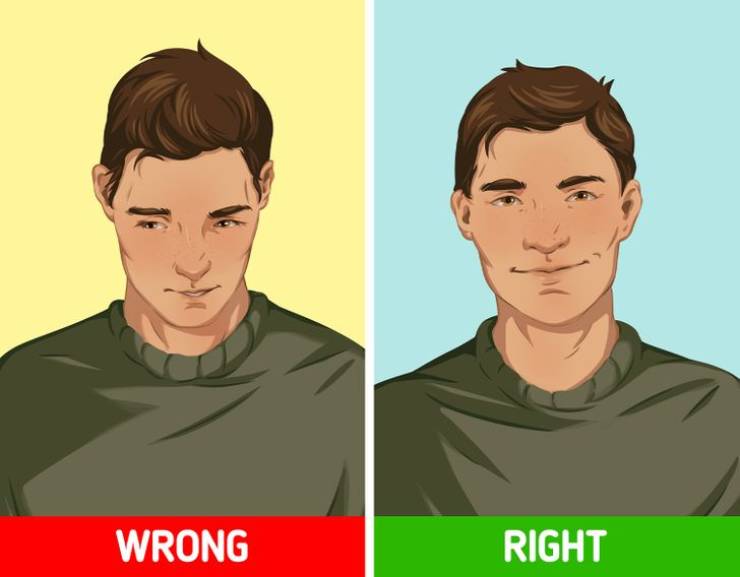
According to author Michael Ellsberg, an expert in body language, eye contact is one of the most important and powerful tools when it comes to interacting face-to-face with another person. Maintaining proper eye contact denotes honesty, sincerity, approachability, attentiveness, and a willingness to listen. You just have to be careful not to appear too inquisitive, but other than that, it’s a very effective method.
Likewise, a person who engages in eye contact during a conversation tends to show that he or she can give a sense of security while exuding self-confidence. On the other hand, doing the opposite, namely looking away or looking down when talking to someone, is often understood as a sign of insecurity.
Lean slightly forward.
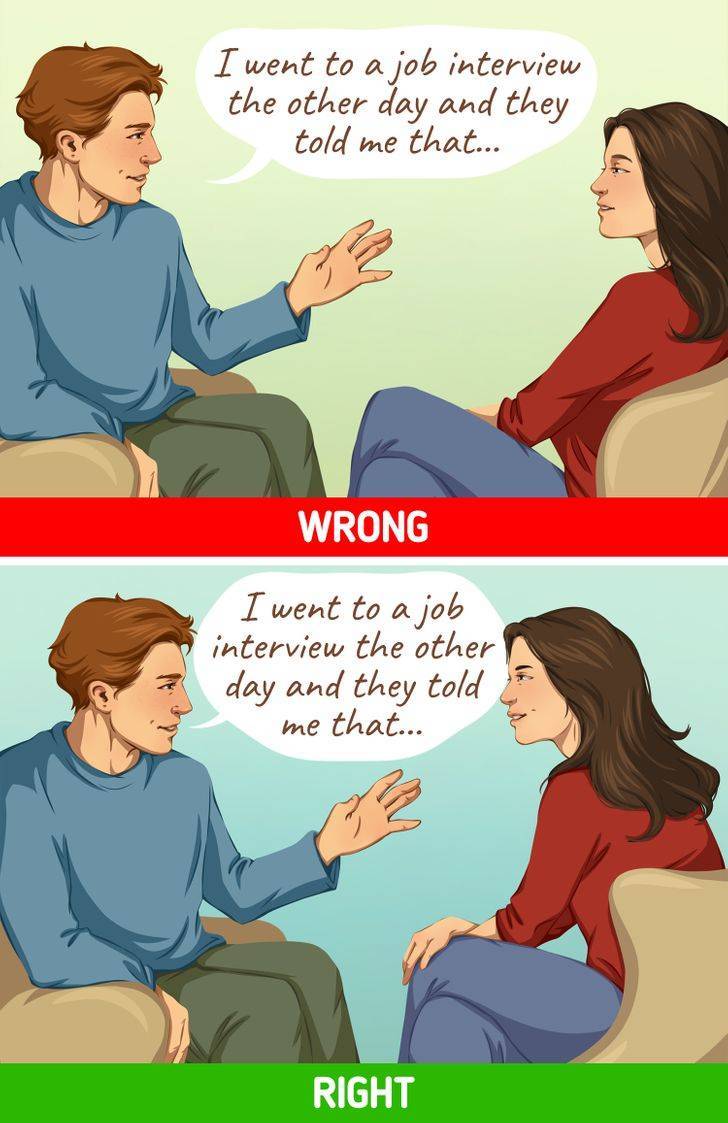
While having a conversation with another person, you may want to consider your posture. This is especially important if you’re seated, as leaning forward can really make a difference. Leaning forward shows the other person that you’re paying attention and that you’re interested in what they’re saying. At the same time, such posture sends a message of self-confidence by reducing or eliminating barriers between you and your interlocutor.
On the other hand, leaning backward increases the distance between you and the other person, showing a lack of interest or attention.
Keep your head upright.
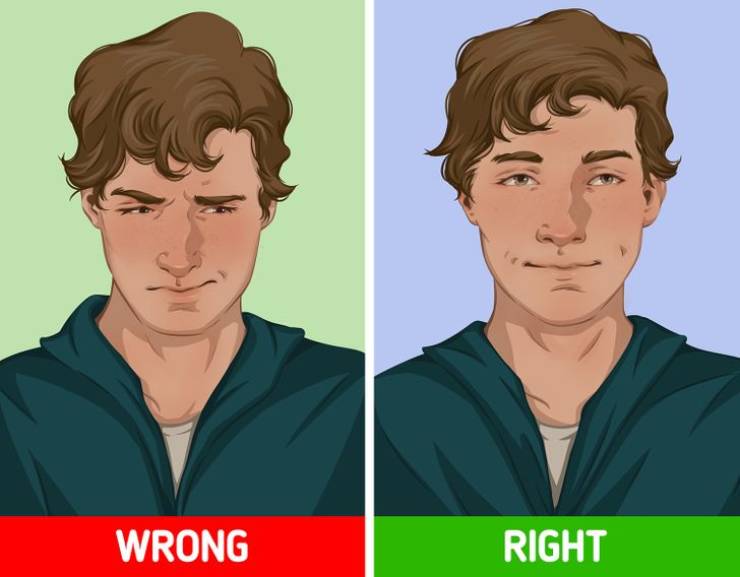
Generally, people who walk with their head down, or who bow their head when talking to another person, have an introverted personality. These postures are also often interpreted as a lack of self-esteem or self-confidence. If, on the contrary, someone walks or talks to others with his or her head raised, this will make them appear like a secure, confident, and proud person.
In the end, it all comes down to the fact that such postures also denote openness and honesty because the person isn’t hiding anything and they’re not afraid to be crystal clear and read by others.
Adopt an upright and open posture.
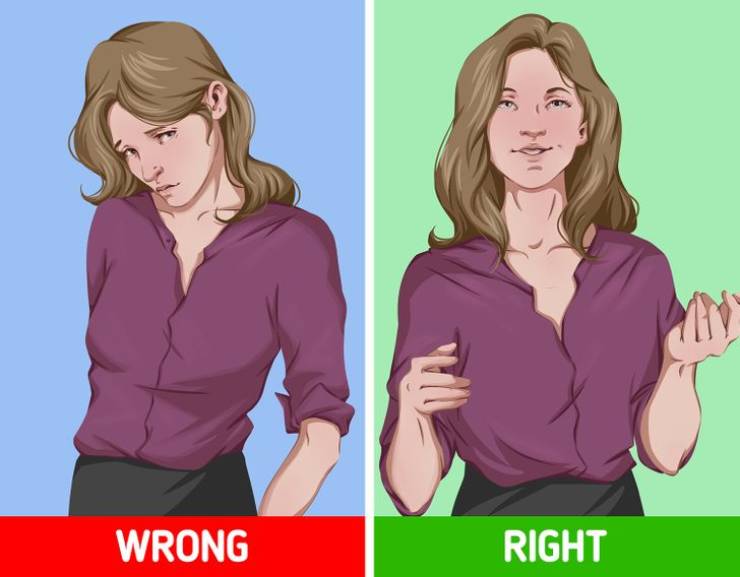
It’s essential to pay attention to your body posture, especially when you’re facing important challenges, such as a meeting or a job interview. If you want to convey confidence, your posture should be straight and you should also look relaxed. You can do that by putting your shoulders back and your head up. This way, you’ll appear serene but self-confident at the same time. A hunched, tense posture, with the shoulders forward and head down, gives the opposite impression: insecurity, shyness, and nervousness.
On the other hand, when we speak of open posture, we’re talking about keeping your legs slightly apart. This also applies to your arms because that indicates you are open and paying attention to what the other person is saying. In contrast, a closed posture, with the arms and legs crossed or very close together, denotes the opposite.
Keep your hands in sight.
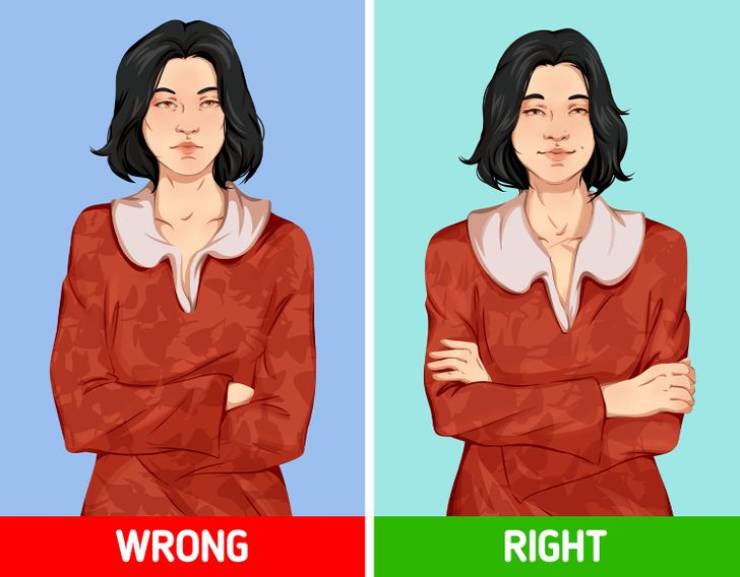
When you want someone else to be aware of the confidence you have in yourself, you should keep your hands away from your pockets. This, by the way, also works well to make other people trust you. Putting your hands in your pockets shows nervousness, insecurity, and a need to hide something or keep your distance. That’s why it’s better to simply keep them in sight and in a relaxed position.
Consciously or unconsciously, when someone feels confident, the separation between the fingers of your hands is usually greater, you tend to raise your thumbs a bit more, and bring your fingertips closer together.
Orientate your feet toward the person you’re talking to.
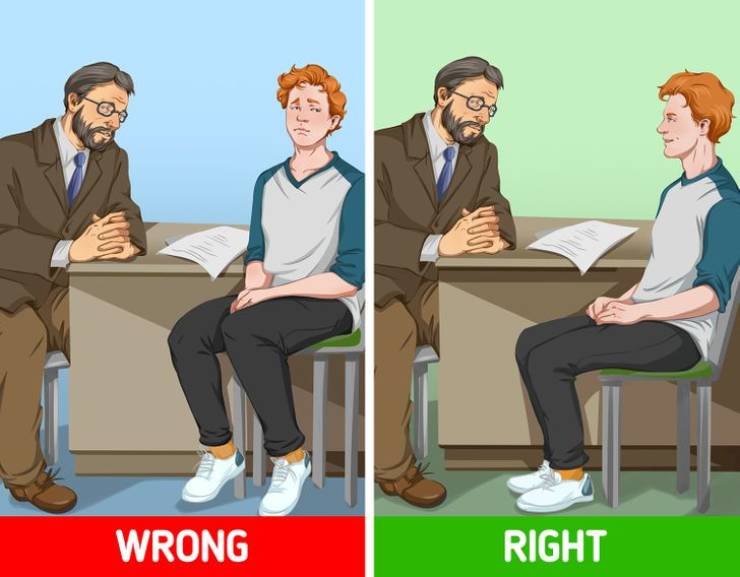
Although it may seem like a simple detail, even somewhat insignificant, the posture and orientation of your feet when talking to others are also important. Remember, anything you do with your body actually conveys a message, and feet are no exception.
It’s believed that most people tend to point their feet at the people they most identify with, like a best friend or someone they consider a leader. Based on this, ideally, you should keep your feet aligned while, at the same time, maintaining an upright posture. This is a good way to communicate that you’re interested in the other person. This posture also makes you appear more self-confident. On the contrary, if your feet start to point outward, it might be a sign of nervousness, anxiety, discomfort, and even the need to hurry up and leave.
Smile slightly.
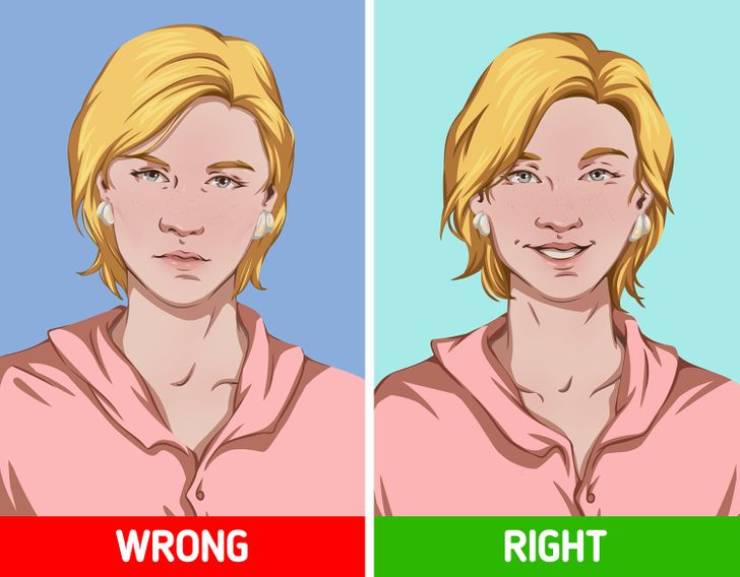
According to a study carried out by neuroscientists, people who show a small smile along with a slight elevation of their eyebrows when conversing with someone tend to generate greater sympathy and trust in their interlocutor.
Generally, when we seek support or try to establish communication with others, we look for someone who seems friendly and willing to listen, and not a person who seems annoying, uncomfortable, or distant. That’s why such simple gestures can actually go a long way when chatting with others.
Take up your own space.
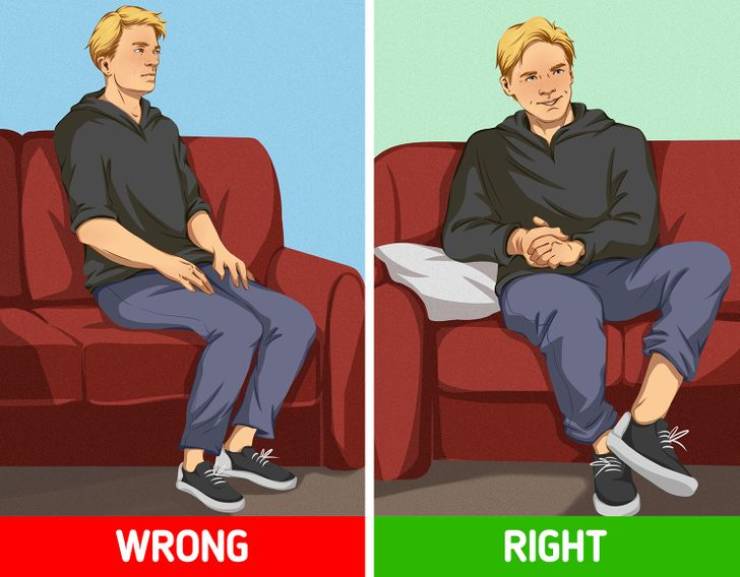
If you feel insecure about yourself or uneasy and nervous about a specific situation, you might have a tendency to make yourself smaller. By doing this, you might appear less intimidating but also less confident than you really are.
If you want to be the image of confidence, you should try to occupy the space you need and feel comfortable using it. Doing this will be seen as a sign of comfort, confidence, and security.
Bonus: why body language is so important and how it can help us communicate better

Sometimes, without intending to or without even opening our mouths, we manage to communicate. When we talk about body language or non-verbal communication, we are referring to those gestures that we make with different parts of our body, especially the face, that transmit a message.
This language, which can be perceived consciously or unconsciously by the person we are communicating with (who can reinforce or contradict what we say), collaborates with the formation of the idea and the image that the other person acquires of us.
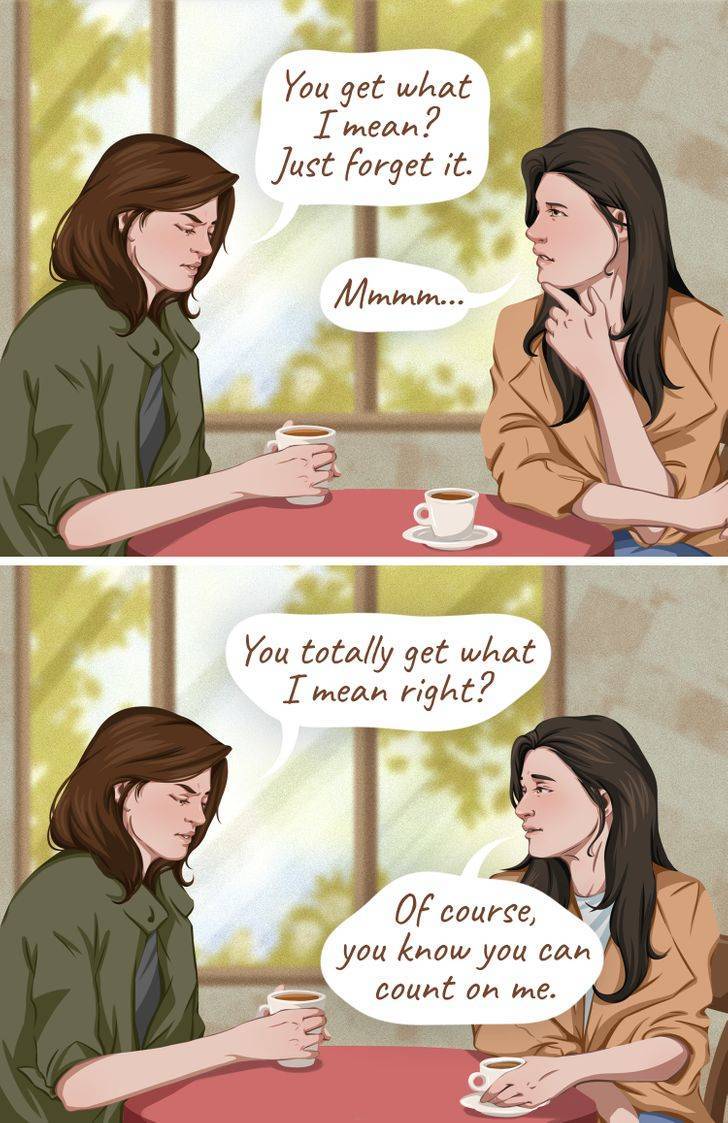
Confidence is a solid foundation for establishing or improving social relationships of different types, and body language is a way of transmitting and strengthening it. That is why achieving good management of our body expressions and getting control of them will make us feel more confident when communicating, and that, in turn, will make the other person get a more positive perception of us.
 Barnorama All Fun In The Barn
Barnorama All Fun In The Barn